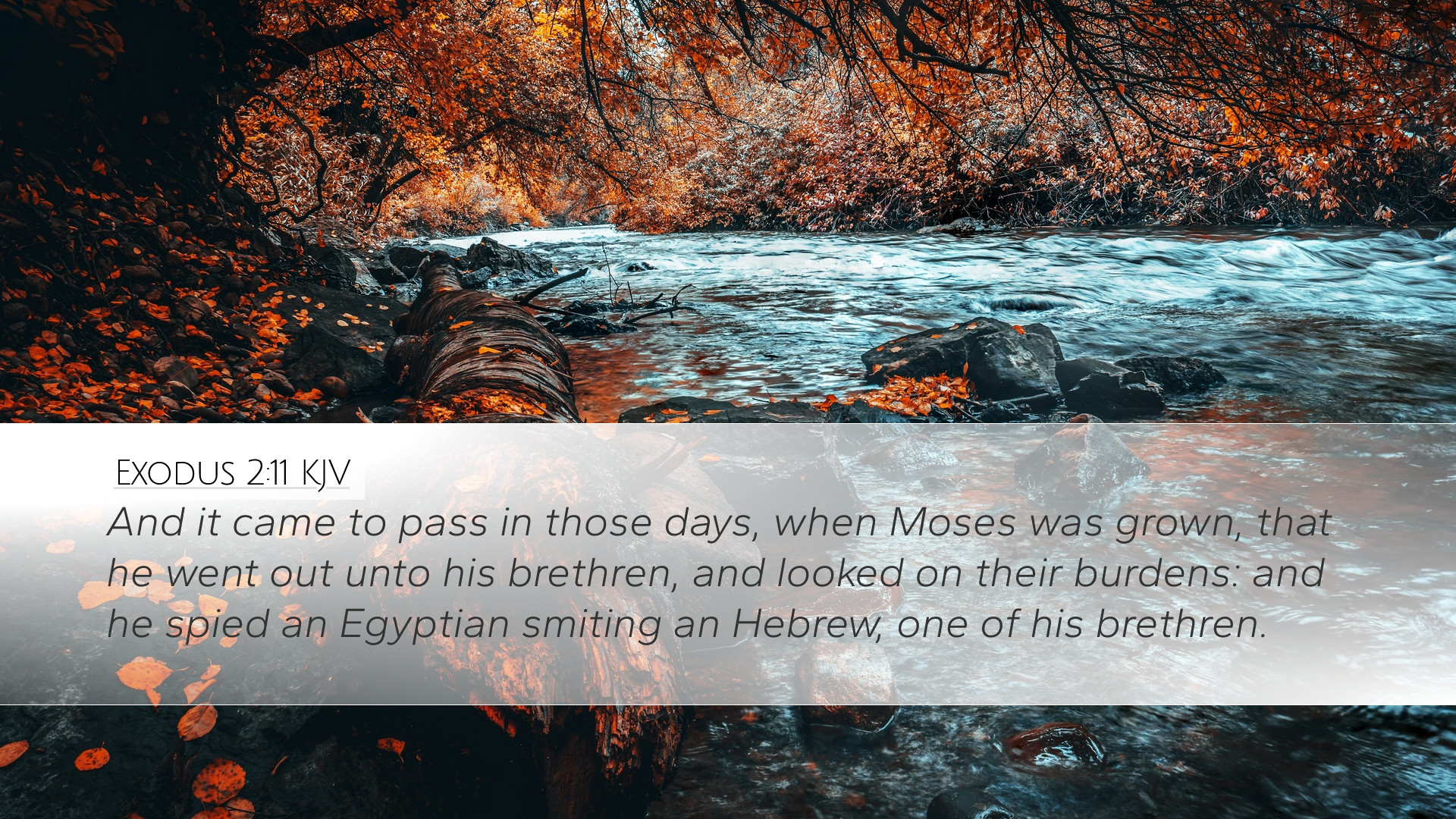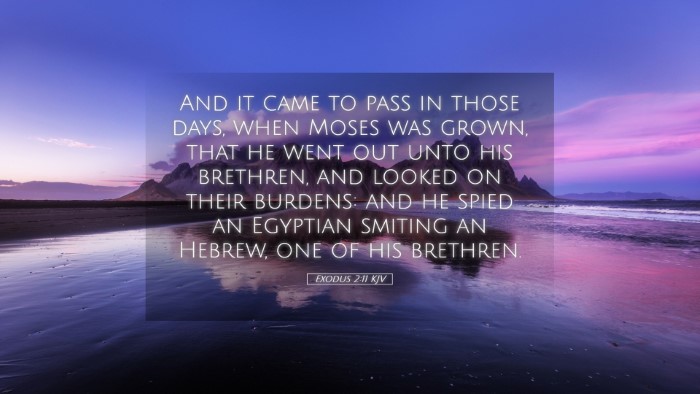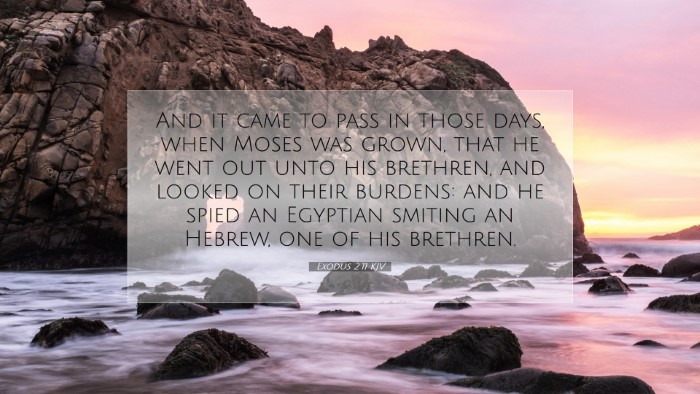Exodus 2:11 - A Comprehensive Commentary
Verse: Exodus 2:11 - "And it came to pass in those days, when Moses was grown, that he went out unto his brethren, and looked on their burdens: and he spied an Egyptian smiting an Hebrew, one of his brethren."
Introduction
The account of Moses is pivotal in the narrative of the Exodus. Exodus 2:11 serves as a critical juncture in Moses’ life, marking the transition from his upbringing in Pharaoh's palace to his role as a deliverer of the Hebrews. This verse encapsulates themes of identity, compassion, and the divine purpose that unfolds through human action.
Contextual Background
Moses, raised in the court of Pharaoh, is confronted with the stark realities of the Hebrew’s oppression. This upbringing reflects the tension between his Egyptian identity and Hebrew heritage. Public domain commentaries shed light on the cultural and theological implications of this duality.
Commentary Insights
-
Matthew Henry:
Matthew Henry highlights the sovereignty of God in Moses’ life and the significance of his awareness of the suffering of his people. He notes that Moses' identification with his brethren demonstrates a deep-seated empathy, which is essential for a leader. Moses’ actions are portrayed as a divine calling, suggesting that God prepares His servants through life experiences that stir within them a sense of justice and solidarity.
-
Albert Barnes:
Albert Barnes provides a detailed exploration of Moses' actions. He emphasizes that observing the burdens of his people leads Moses to react passionately against the oppression he witnessed. Barnes interprets this moment as the inception of Moses’ mission, highlighting the transition from personal anger to a calling for national liberation. The brutality Moses witnesses propels him toward action, underscoring the human response to injustice.
-
Adam Clarke:
Adam Clarke focuses on the significance of Moses’ act of witnessing the oppression. He mentions that Moses’ choice to identify with the Hebrews was crucial, noting it reveals the heart of a leader—a heart that feels and acts in response to others' suffering. Clarke argues that this moment is foundational as it illuminates the moral implications of leadership, where a leader must empathize with the plight of their people to effectively guide them toward freedom.
Thematic Elements
-
Identity:
The verse prompts reflection on Moses’ identity crisis. Raised as an Egyptian yet born a Hebrew, this duality shapes his worldview and prepares him for the future role as a deliverer. This theme resonates with pastoral teachings on the importance of understanding one’s identity in Christ and the broader implications in leadership and ministry.
-
Compassion:
Moses’ compassion towards the suffering Hebrews is palpable. Henry remarks on the divine impetus behind this empathy, suggesting that true leadership is crafted by the presence of compassion in the heart. This highlights the crucial pastoral insight that effective ministry often begins with a deep compassion for the marginalized and oppressed.
-
Divine Providence:
Each commentator addresses the thematic undercurrents of divine providence and preparation. Clarke indicates that God prepares His instruments for His purposes through their experiences. This notion encourages students and theologians to view their life stories as part of God's grand narrative, designed to fulfill divine missions.
Application for Pastors, Students, and Theologians
This passage invites leaders to cultivate a heart for the oppressed and to recognize their own identities and backgrounds as tools for ministry. For students and theologians, the interpretation demonstrates the historical and spiritual context of the Exodus, emphasizing its ongoing relevance in discussions of social justice, leadership, and the nature of divine calling.
Conclusion
Exodus 2:11 is not merely a historical account but a rich narrative pregnant with meaning for believers today. Through the writings of Matthew Henry, Albert Barnes, and Adam Clarke, we gain profound insights into leadership, identity, and God’s providence. Understanding this multiplicity encourages deeper engagement with the biblical text, fostering a commitment to justice and compassion that reflects the heart of God.


